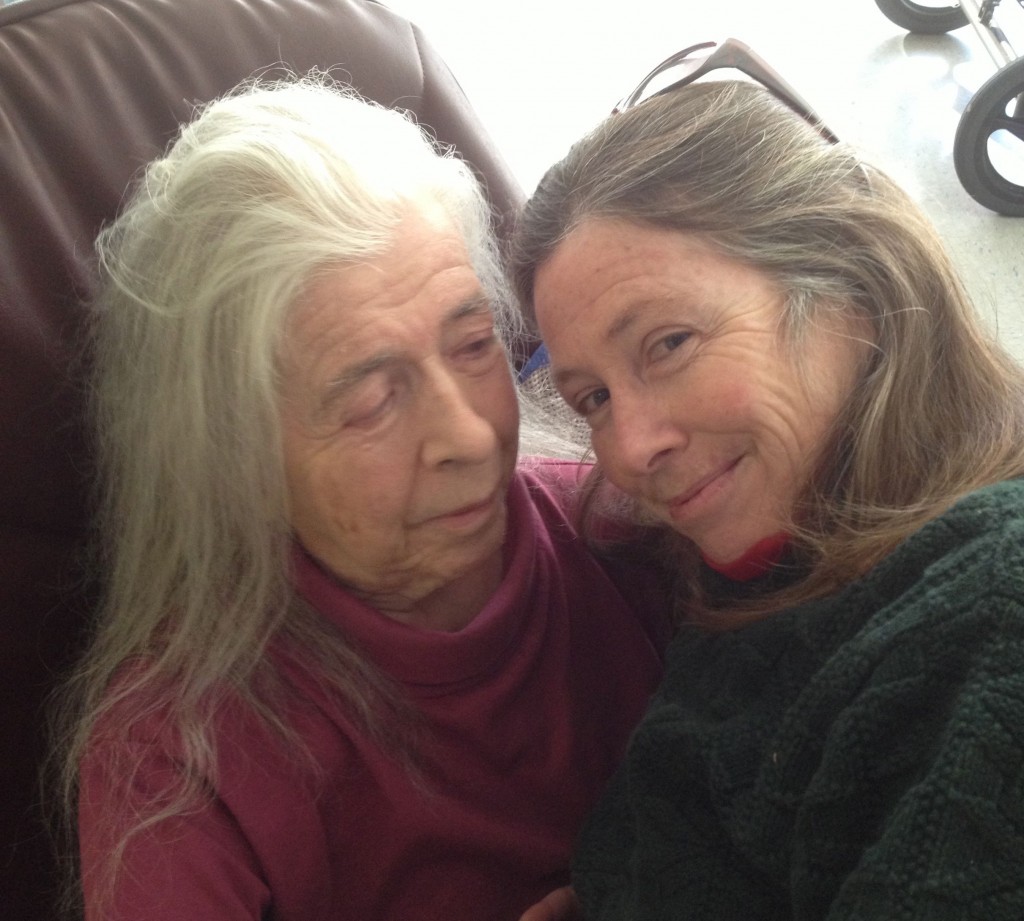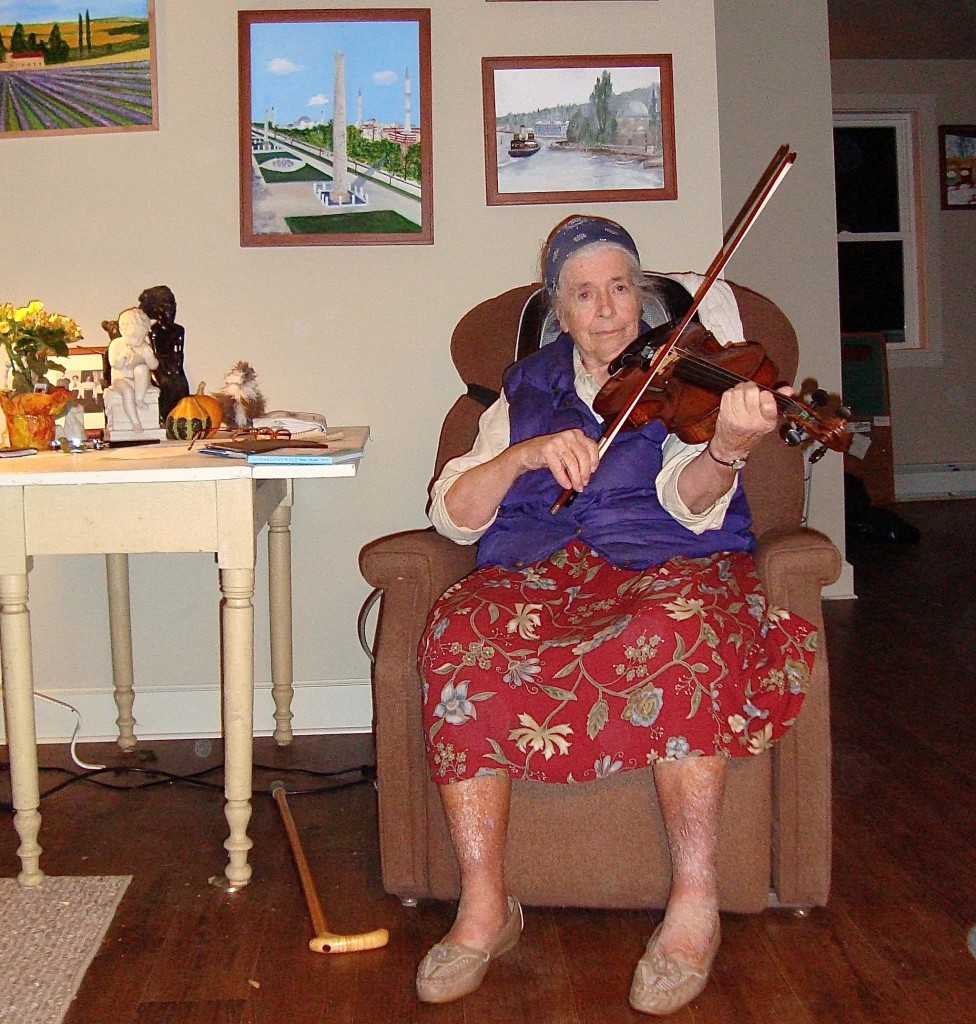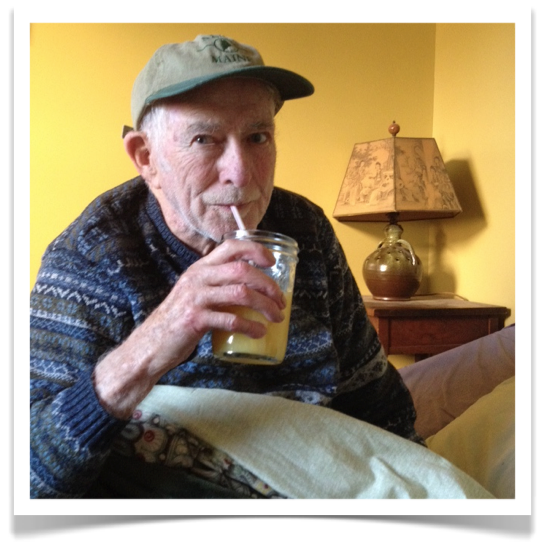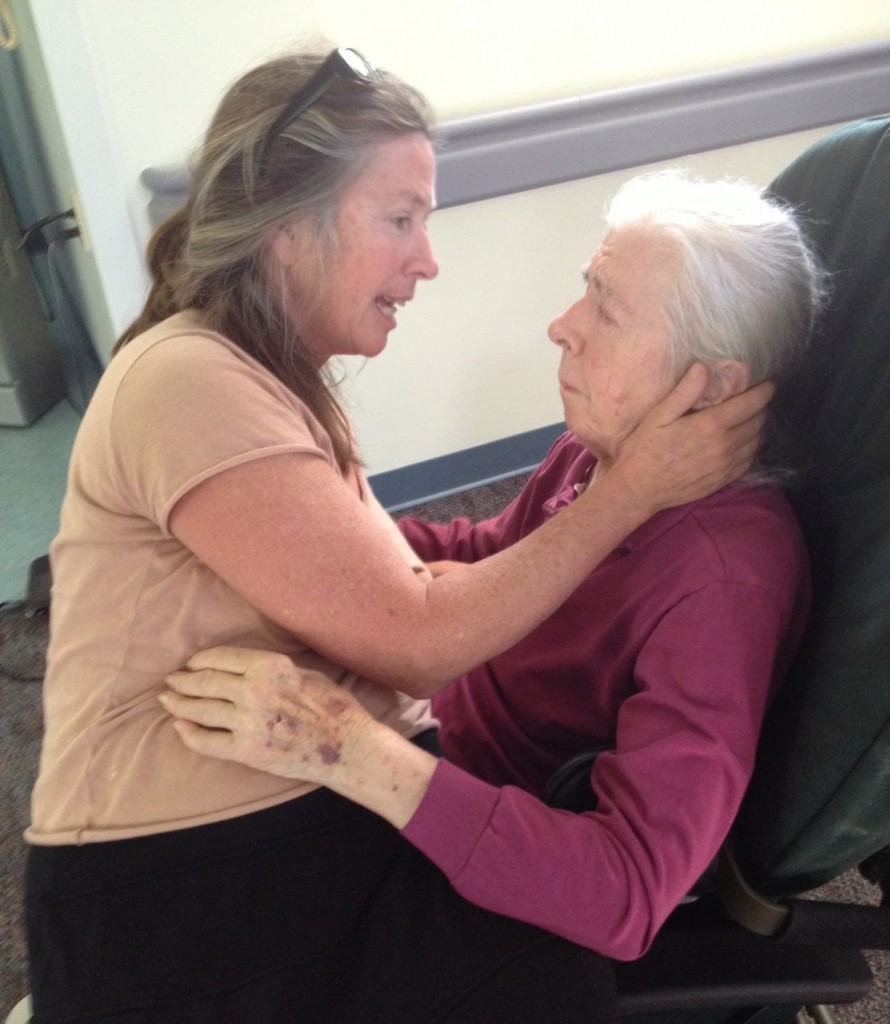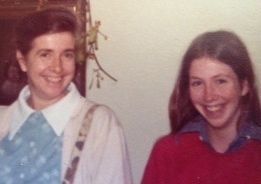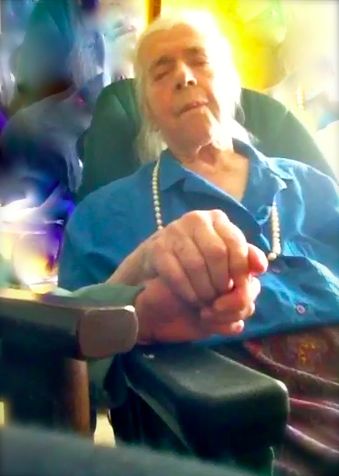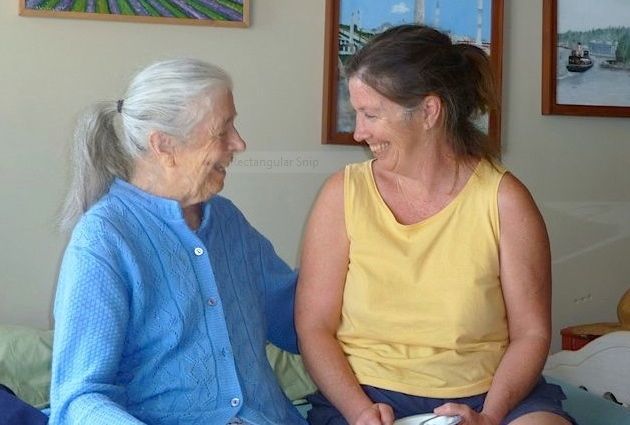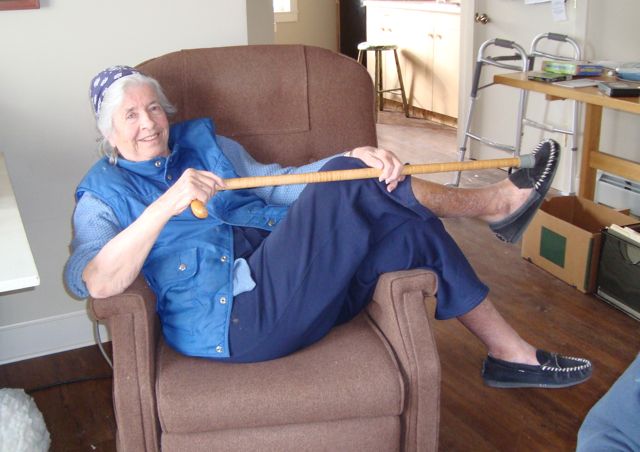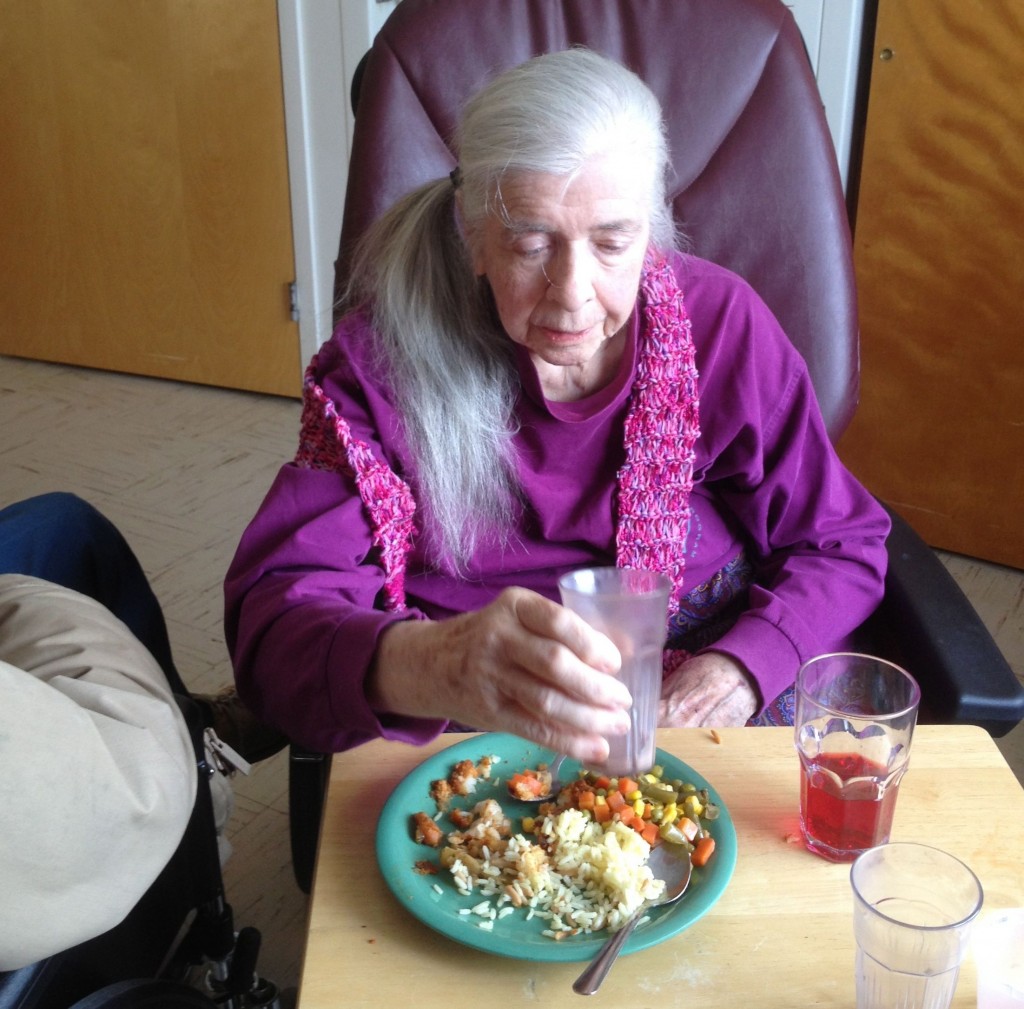In loving memory of Marianne Whitman, we are re-running this blog written by her daughter Beth for In Care of Dad two years ago today.
by Beth Whitman
I was thinking about last Monday, when I visited Mom. It was dinner time, and I noticed that she was holding her cup of chocolate milk up to her lips, and trying to drink, but she couldn’t figure out how to tip the cup so that the milk would get to her mouth. I put my hand on hers and helped her tip the cup. She drank deeply, almost finished the whole thing in one go. I refilled the cup, and again she couldn’t figure out how to tip it toward her mouth. So I helped her again. And after a couple of times, her hand began to remember the motion and she was able to do it herself. But she put the cup down, and when she picked it up again her hand had forgotten.
The process of saying goodbye happens over and over again in little ways. But today it happened a big way. Today she died.
I did not wake up this morning expecting to have my mom die today.
I feel somehow a little guilty.
Continue Reading
